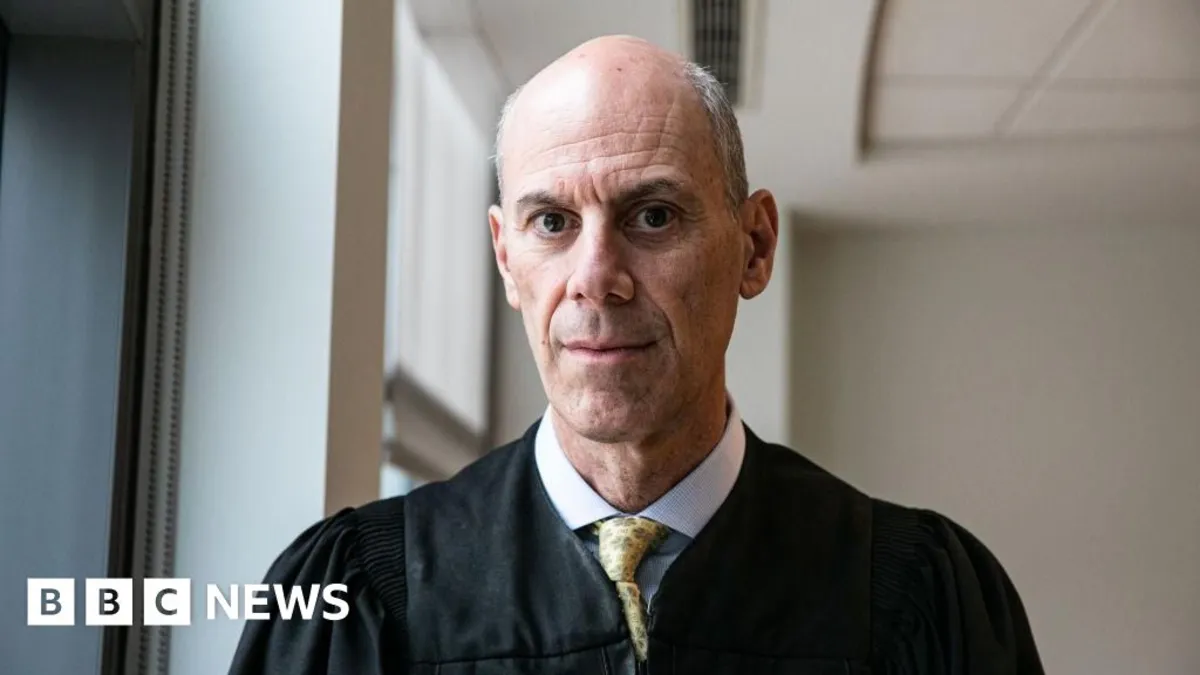
A U.S. federal judge has issued a critical warning to officials in President Donald Trump's administration, giving them a one-week deadline to comply with a court order or face the possibility of being found in contempt of court. This development could lead to a significant conflict between two powerful branches of the U.S. government—the judicial and executive branches. Judge James Boasberg stated that the most straightforward way for these officials to avoid contempt would be to reclaim custody over a group of over 200 individuals who were deported to El Salvador last month, despite his previous directive against such actions.
Despite the judge’s warning, the Trump administration has shown little interest in complying, publicly criticizing the court's request and indicating plans to appeal. The White House has denied any allegations of wrongdoing, framing the deported group as terrorists and criminal illegal migrants who pose a threat to American society. Legal experts suggest that tensions between the judicial and executive branches are mounting, making a showdown increasingly likely.
So, what actions could unfold if the Trump administration fails to meet Judge Boasberg's April 23 deadline? An expert explained that the first step in holding any Trump officials in contempt would involve identifying who is responsible for the non-compliance with the judge’s orders. According to Robert Tsai, a constitutional law professor at Boston University, it remains uncertain who specifically acted against the judge's initial directive. To ascertain responsibility, lawyers would likely engage in a process called discovery, which involves seeking documents and questioning government officials under oath.
Government lawyers contended that planes had already departed for El Salvador by the time Judge Boasberg issued his written order, and that his subsequent verbal command to halt the deportations occurred when the aircraft were no longer within U.S. airspace. If Judge Boasberg perceives that government lawyers are not cooperating, he has the authority to levy fines on both the lawyers and the officials until they comply with his order. This scenario falls under the category of civil contempt, a legal term referring to actions that disregard court orders.
There is also the potential for officials in the Trump administration to be charged with criminal contempt, a far more serious accusation that could result in imprisonment. This option is considered a last resort, as explained by Professor Tsai. In instances of criminal contempt, the issue would typically be referred to the Justice Department for prosecution, led by Attorney General Pam Bondi, a known Trump supporter. Notably, Judge Boasberg could appoint a special prosecutor to pursue criminal contempt charges, bypassing Bondi entirely.
However, as noted by Ilya Somin, a law professor at George Mason University, it is plausible that the Justice Department may choose not to prosecute under this administration. Even if the case is pursued, President Trump retains the power to issue pardons for criminal offenses, although he cannot grant pardons for civil liability.
On Wednesday, Judge Boasberg issued a ruling indicating that the government had willfully disregarded his order by sending planes to deport individuals to El Salvador—actions he previously prohibited. The judge highlighted that the wartime law cited by the Trump administration, the 1798 Alien Enemies Act, allowed expedited deportations without evidence, yet this does not absolve the government of its violation of his order. To steer clear of contempt proceedings, the judge provided the administration with two options: either purge itself of contempt or remedy the noncompliance.
Judge Boasberg clarified that the most apparent solution would be for the administration to take custody of the individuals deported to a mega-prison in El Salvador, allowing them to challenge their removability in court. Importantly, the judge stated that the government would not need to return any of those deported—many of whom have not been convicted of crimes—nor would they have to fly them back to the U.S. The administration could also propose alternative methods to achieve compliance with the judge's order.